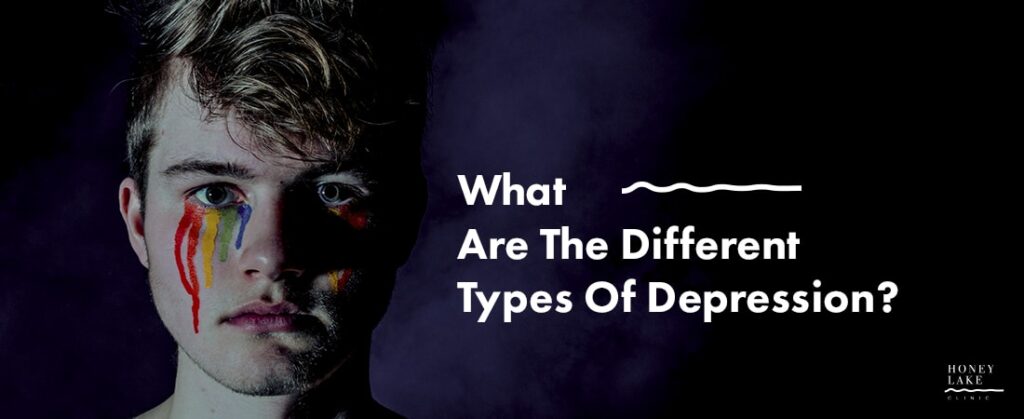What are the Different Types of Depression?
Life can be overwhelming at times. Feeling sad or becoming discouraged in response to life’s ups and downs is quite normal. Depression, however, is different. More than a situational sadness, depression is a serious medical condition. It abides, negatively affecting the way you think, feel and function.
There are many different types of depression. Medical and mental health professionals can guide you to a correct diagnosis, which is important in deciding the right treatment for you.
Here are a few types of depression. Do any of these and their symptoms sound familiar to you?
Major Depression
Called depression, major depression or clinical depression, this most common diagnosis is made based on symptoms, their frequency and intensity. Some of those symptoms are:
- Persistent sadness
- Feelings of hopelessness or worthlessness
- Disinterest or a loss of pleasure in life’s activities
- Anxiety, irritability, restlessness, agitation or anger
- Insomnia or excessive sleeping
- Extreme appetite or weight changes
- Fatigue or loss of energy
- Difficulty concentrating or becoming easily distracted
- Reckless behavior
- Thoughts of suicide
Persistent Depressive Disorder
Persistent depressive disorder is a longer lasting but often less intense form of depression, where a client experiences a depressed mood most of the day, for more days than not, and over a period of 2 years or longer.
Bipolar Disorder
Bipolar Disorder is characterized by cycling mood changes, experiencing periods of extreme highs (mania) followed by extreme lows (depression). The presence of mania or hypomania is key in making this diagnosis.
Seasonal Affective Disorder (SAD)
Seasonal affective disorder is a period of major depression that most often happens during the winter months, when the days grow short and you get less and less sunlight. It typically goes away in the spring and summer.
Depression with Psychosis
Some people with depression experience psychosis in addition to typical depression symptoms. Sufferers sometimes see, hear and feel things that are not really there, can become extremely paranoid and think unreasonably. Psychotic symptoms include:
- Hallucinations (seeing or hearing things that aren’t there)
- Delusions (false beliefs)
- Paranoia (wrongly believing that others are trying to harm you)
Premenstrual Dysphoric Disorder (PMDD)
Women with PMDD have depression and other symptoms at the start of their period. Besides feeling depressed, you may also have:
- Mood swings
- Irritability
- Anxiety
- Trouble concentrating
- Fatigue
- Change in appetite or sleep habits
- Feelings of being overwhelmed
Peripartum (Postpartum) Depression
Women who have major depression in the weeks and months after childbirth may have peripartum depression.
Atypical Depression
Whereas those suffering other forms of major depression usually don’t eat, can’t sleep and cannot break their sadness, those experiencing depression with atypical features—atypical depression—may eat too much, sleep too much, and so on. One of the main ways atypical depression distinguishes itself from melancholic depression in mood reactivity. The person with atypical depression can see his or her mood improve if something positive happens.
For the clinically depressed—in any and all forms—symptoms can combine and become severe enough to impact all areas of life. Depression is damaging and can become deadly if untreated. We can help.
The very good news is that depression can be effectively managed and even cured when we address all three spheres—body, mind and spirit. Medication, psychological awareness and skills, and spiritual truths and principles are all integral parts of a life-transformation process.
You can be free of depression’s grip!
At Honey Lake Clinic, our professional and experienced team of licensed therapists, psychologists, and psychiatric specialists understand what you’re going through and will assist you in regaining control of your life. The individualized treatment, experienced staff, and tranquil environment at Honey Lake Clinic can help you regain control of your life and find lasting transformation.
